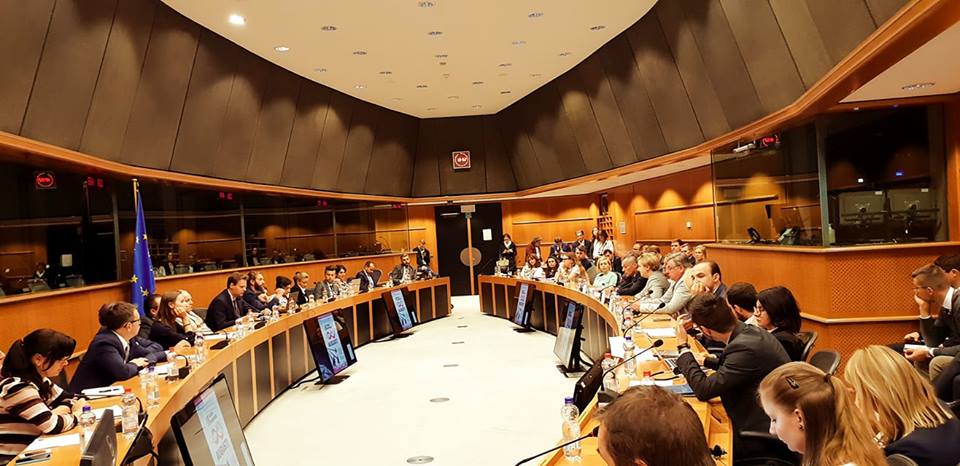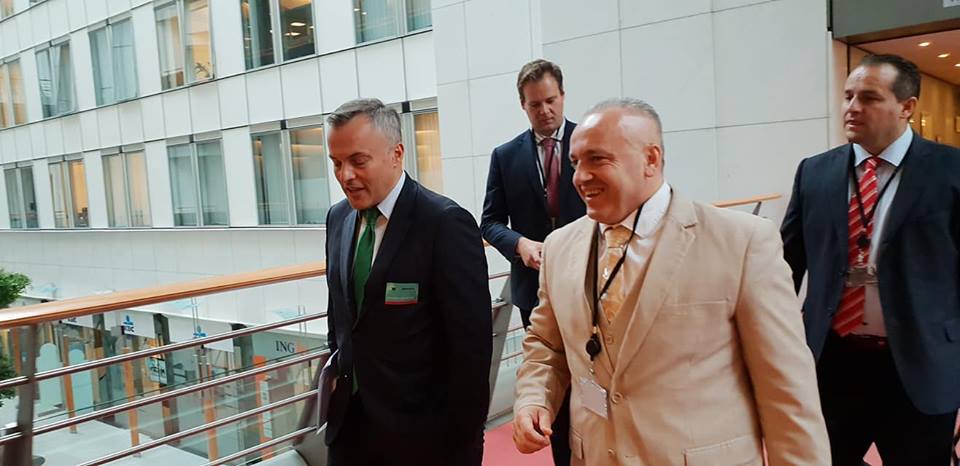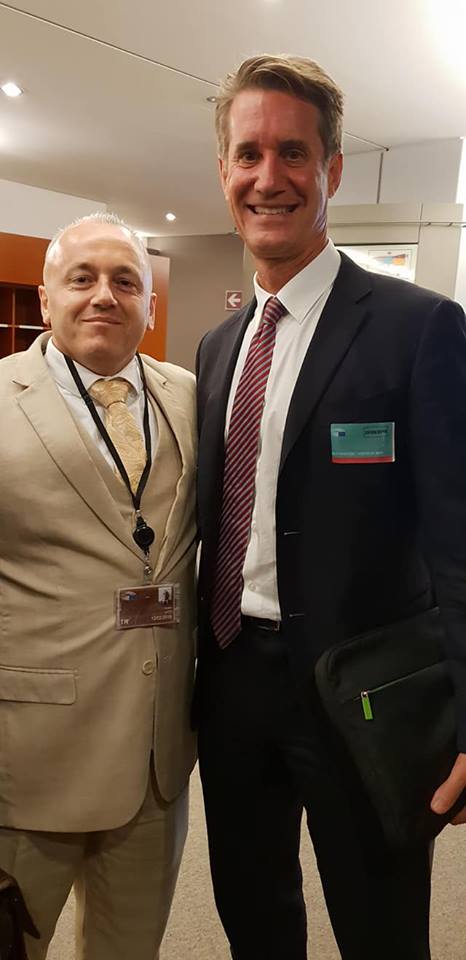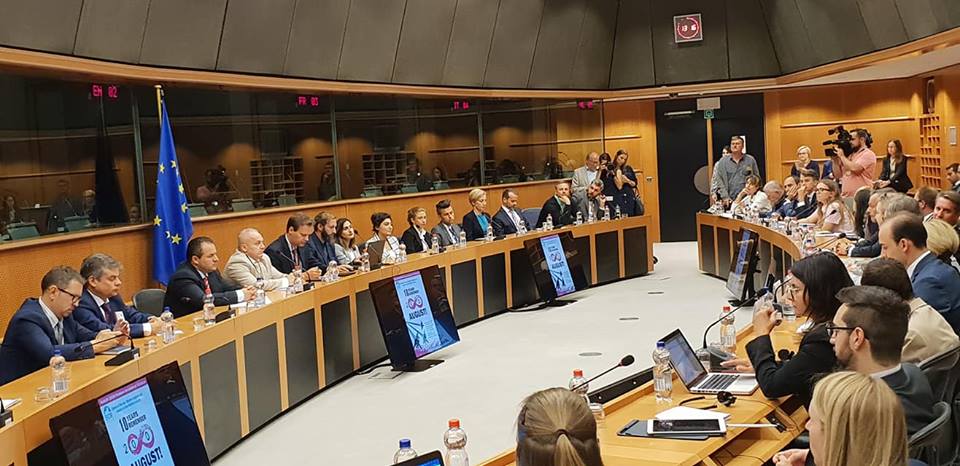On Wednesday 29 August 2018, the Democratic Foundation of Chameria President Festim Lato, Mr. Ali Aliu and Mr. Jeroen Zandberg attended a conference at the European Parliament organised by the European Parliamentarians Ms. Anna Fotyga and Mr. Kolma Zlotowski in order to reflect on the 2008 war and subsequent occupation of parts of the territory of Georgia by Russia. The conference also aimed at offering lessons on how to react to current Russian aggression in the Ukraine and the Western Balkans.
The organisers of the conference are a former foreign affairs minister and a senator from Poland, which is one of just a few countries who from the start strongly opposed Russian military aggression against its neighbours and the covert interference and interventions in the sovereign and free countries in Eastern Europe who were formerly oppressed by the Soviet Union.
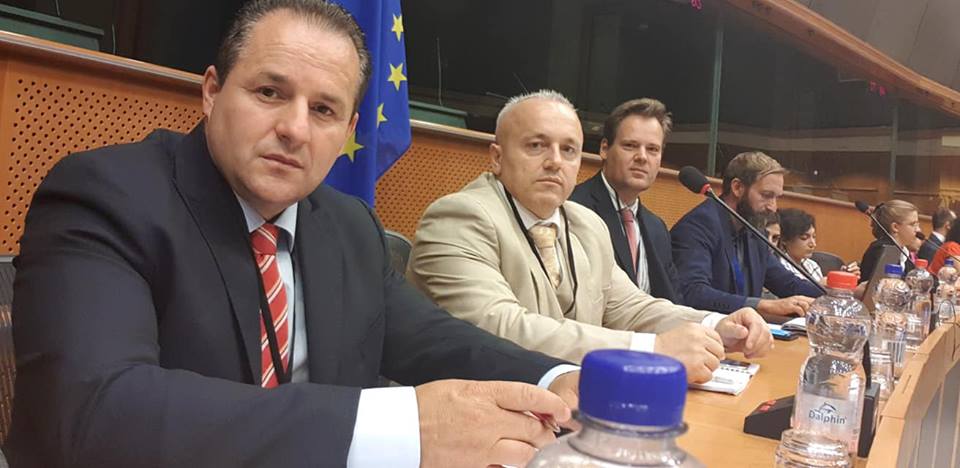
Parliamentarian Fotyga opened the conference with mentioning that a resolution against Russian aggression was successfully adopted by the European Parliament in the July session, but that it required intensive lobbying and pressure from many presidents and prime-ministers from European countries that are most aware of the threat that Russia poses to peace and security in Europe.
The invited speakers of the conference were directly involved in the political and diplomatic decision-making process during the war in 2008. Mr. Matthew Bryza was the US Deputy Assistant Secretary of State for Europe and Eurasia, Ms. Eka Tkeshelasvili was the Minister of Foreign Affairs of Georgia and Mr. Batu Kutelia was the Ambassador of Georgia to the United States. They provided many examples of the way in which Russia manipulated the international community and took advantage of the lack of resolve by the West.
Once it gained freedom from the Soviet Union, Georgia took immediate action to come closer to the West. It knows that its interests lay in the integration of international and western institutions that guarantee freedom and cooperation. Russia has always seen this move as a threat to its interests and actively pursues a policy of undermining its neighbours in order for them to remain dependent upon Russia.
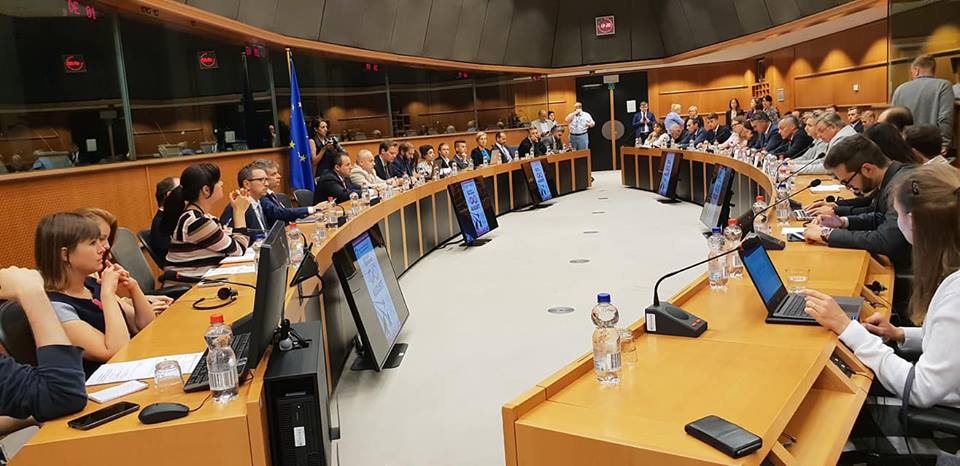
The invasion of Georgia by Russian forces in 2008 was not an isolated incident but was part of a grand strategy by Russia. Before the actual war of August 2008 there were many provocations by the Russians, which were meant to test the West’s resolve in standing by their allies and values. Unfortunately, the United Nations as well as the Organisation for Security and Cooperation in Europe reacted in a way that proved favourable to Russia. For example, when Khodori was bombed and the UN decided to investigate they came to the conclusion that ‘someone came from somewhere’, thereby letting Russia get away with its military attacks. Furthermore, when the Russians tried to destroy a radar station in Georgia the OSCE did not react. These, and other, actions provided the Russians the assurance that an international red line is not that red after all.
Several of the speakers emphasised that it is not enough for individual countries to step up to Russian aggression, but that institutional responses were necessary to provide peace and security and prevent Russia from imposing its predatory world view. Unfortunately, Europe and America failed history with their weak reactions against Russian aggression towards Georgia. This led to the situation that Russia learned a lot, Georgia learned a little and the West learned nothing from the events in 2008. The failure of the West to recognise and respond appropriately to the grand strategy of Russia paved the way for the annexation of the Crimea and the war in Eastern Ukraine.
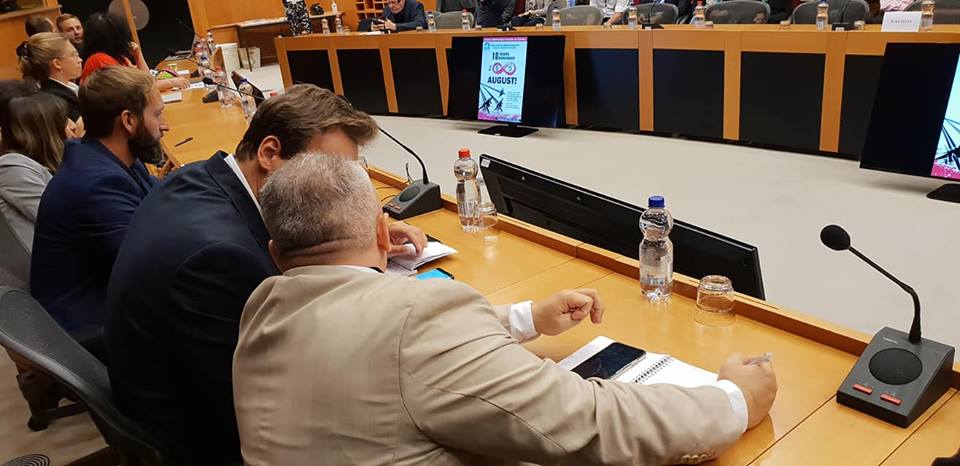
However, it is never too late to learn. Russia still has the same world view as it has had for decades. The Russian meddling in the Western Balkans is an important and timely issue. The Russian-backed attempt to overthrow the government in Montenegro in 2016 in order to prevent them from integration into NATO is an example of Russia’s attitude towards the Western Balkans. The activities of Russian secret agents in Northern Macedonia in 2018 who tried to start violent clashes in order to prevent Greece and its neighbour to come to a resolution regarding the name Macedonia is another poignant example.
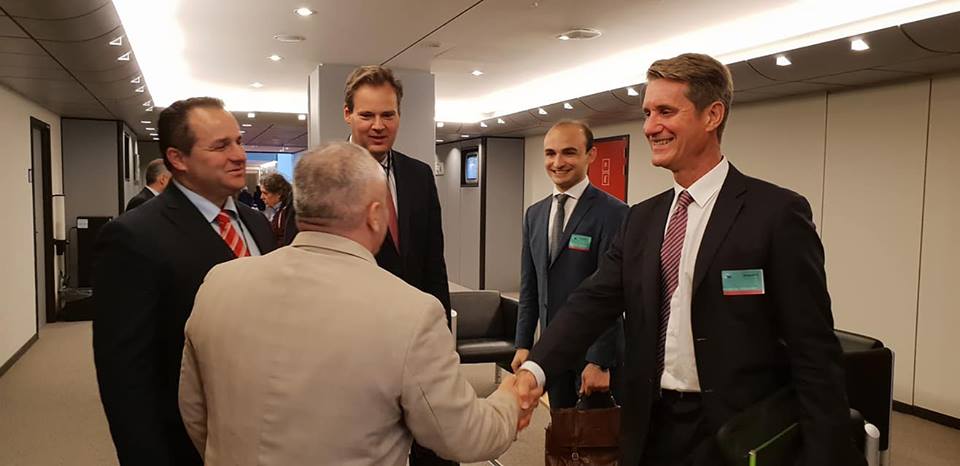
The Cham issue is another issue that hangs like a dark cloud over the integration of the Balkans into European structures. The Chamerian delegation attended the conference on Russian aggression since they are well aware of Russian interests in the Western Balkan region and the impact it has on the Cham issue. The Cham-Albanian community has long been the most vocal supporter of the US and the EU in the region and considers itself to be truly European. The European Commission presented its Strategy in February of this year and made it a precondition for the integration into the EU that all the countries resolve their issues. The Cham issue is one of the most important possible conflicts that still exist in the Balkans. It presents an open wound that can be exploited by Russia to prevent the region from permanently joining the European community of values. The Chamerian delegation therefore made a case to resolve the Cham issue as soon as possible by putting it high on the European political agenda, thereby preventing Russia from implementing its will and world view on the region and instead come to peace and justice for all.
The Chamerian delegation discussed the Cham issue further with several of the participants of the conference later in the day. The president is optimistic that those who support the European values and are opposed to the Russian world view, understand that it is crucial that the political weight of the European leaders comes behind the resolution of the Cham issue thereby getting historical justice for the people of Chameria.
